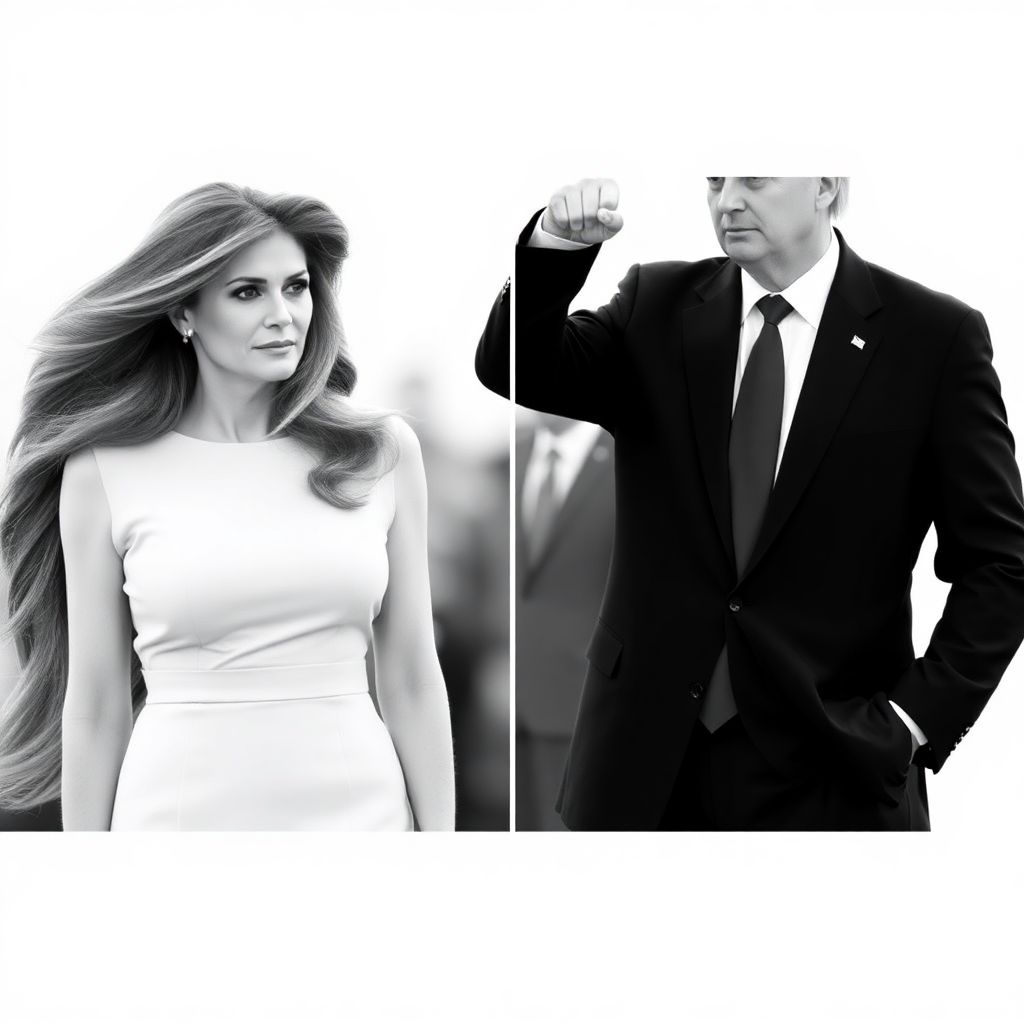Melania Trump and Argentine President Javier Milei have found themselves unexpectedly entangled in a cryptocurrency fraud scandal—not as perpetrators, but as unwitting symbols in a deceptive scheme, according to new legal allegations. A recently filed class action lawsuit accuses Benjamin Chow, the founder of the crypto startup Meteora, of orchestrating the fraudulent promotion and sale of so-called “meme coins” that exploited the recognizable names of the two public figures to legitimize the scam.
The lawsuit, part of the Hurlock v. Kelsier Ventures case, names Chow and several business entities as defendants in a wide-ranging fraud and racketeering complaint. At the heart of the allegations are five cryptocurrency tokens, with particular attention on two: LIBRA, allegedly associated with Milei, and MELANIA, named after the former U.S. First Lady. These tokens, the complaint claims, were not endorsed by either figure, despite marketing efforts that implied otherwise.
According to the plaintiffs, the defendants used the likeness, names, and personas of influential public figures to boost the credibility of otherwise dubious digital assets. By aligning these tokens with high-profile individuals, the fraudsters were able to attract retail investors who believed the coins had authentic backing or endorsement. The lawsuit argues that this tactic amounted to a deliberate strategy to manipulate market perception and inflate the value of the tokens before orchestrating a “pump and dump” operation.
The legal filing does not accuse Trump or Milei of any wrongdoing. Instead, it frames them as victims of image misappropriation. The plaintiffs emphasize that neither individual had any formal involvement in the development, promotion, or sale of the MELANIA or LIBRA tokens. Their names were allegedly used without consent to create a false sense of legitimacy around the crypto projects.
The complaint describes how investors were misled into believing that these meme coins were part of a larger, credible initiative. Promotional materials and social media campaigns were reportedly filled with references and imagery suggesting political or ideological alignment with the public figures. These campaigns were allegedly designed to exploit the popularity and polarizing appeal of Trump and Milei to attract followers of their political movements.
Benjamin Chow and his associated entities are accused of violating securities laws, engaging in wire fraud, and operating a scheme under the guise of decentralized finance (DeFi). The suit claims that Chow and his team pumped up the value of the tokens by generating artificial hype and then sold off their holdings once prices peaked, leaving regular investors with steep losses.
This case underscores a growing problem in the crypto world, where meme coins—cryptocurrencies often based on jokes, internet culture, or celebrity associations—have become prime vehicles for exploitation. With minimal regulation and little transparency, these tokens can be launched overnight, often accompanied by a flurry of social media marketing aimed at creating a sense of urgency and FOMO (fear of missing out).
The rise of meme coins like Dogecoin and Shiba Inu has demonstrated the power of community-driven hype, but it has also opened the door for bad actors to manipulate public sentiment. By leveraging the names of trusted or controversial figures, scammers can manufacture credibility and lure unsuspecting investors into high-risk ventures.
In many cases, the figures whose names are used may not even be aware of the schemes until legal or media scrutiny brings them to light. This raises complex questions about intellectual property rights, personal branding, and legal protections in the digital age. As the lawsuit against Chow progresses, it may set important precedents for how courts interpret the unauthorized use of public personas in the context of cryptocurrency.
For investors, the case serves as a stark reminder to conduct thorough due diligence before putting money into any crypto project, especially those that rely heavily on celebrity or political branding. While the allure of rapid gains can be tempting, the lack of accountability in the meme coin ecosystem means that the risks often outweigh the potential rewards.
Legal experts suggest this case could be a watershed moment for crypto regulation, particularly in how digital tokens are marketed. If the plaintiffs succeed in holding the developers accountable for the misuse of well-known names, it may deter others from using similar tactics. Moreover, it could encourage lawmakers to introduce clearer guidelines on advertising and promotional practices for blockchain projects.
There is also a broader cultural dimension to this story. The use of political figures in crypto scams reflects a growing trend of politicizing financial instruments. Tokens like LIBRA and MELANIA were not just financial products—they were marketed as ideological symbols, tying investment choices to political identity. This blurring of lines between finance, media, and politics adds another layer of ethical complexity to an already murky landscape.
As for Melania Trump and Javier Milei, their legal teams have yet to comment on the allegations, but both may choose to pursue legal action of their own for unauthorized commercial use of their names. In doing so, they could strengthen the legal framework protecting public figures from digital misrepresentation and reputational harm.
In the meantime, federal regulators and watchdog groups are likely to monitor the situation closely. The outcome of this case may influence future enforcement strategies and investor protections in the burgeoning but volatile world of meme coins and decentralized finance.
Overall, the scandal highlights the urgent need for increased transparency, accountability, and regulatory oversight in the cryptocurrency space. As digital assets continue to evolve and intersect with popular culture and politics, the legal system must adapt to ensure that innovation does not come at the cost of integrity and public trust.

